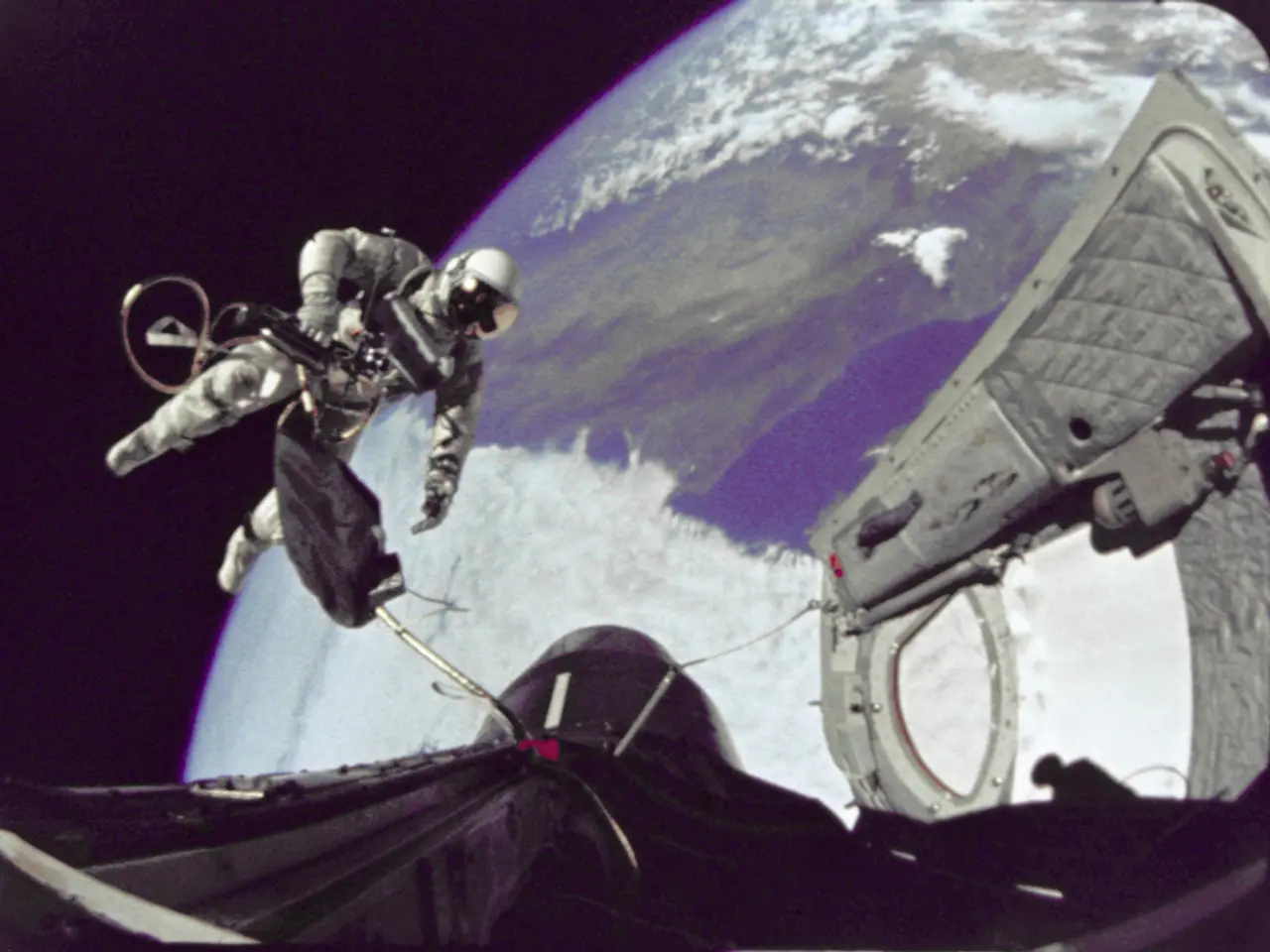Astronauts' Brains Show Signs of Malfunctioning
In the realm of space exploration, understanding the impact of long-duration missions on cognitive abilities has become a significant area of research. This investigation not only sheds light on the effects of space on the human brain but also offers insights into how individuals cope with extreme environments and stress on Earth.
The unique environment of space, influenced by factors such as microgravity, radiation exposure, isolation, and disrupted circadian rhythms, can lead to cognitive changes during missions, particularly those in Low Earth Orbit (LEO). Some key aspects of these changes include a potential reduction in speed and accuracy during certain tasks, alterations in brain structure due to microgravity, and the impact of ionizing radiation on neurotransmission systems.
Researchers have identified four cognitive domains most susceptible to change during space missions: processing speed, visual working memory, sustained attention, and risk-taking propensity. Prolonged exposure to microgravity and space stressors may affect attention span and focus, memory recall and formation, the ability to plan, organize, and make decisions, and the speed of cognitive processing.
While the effects of microgravity in LEO are similar to those in deep space, the levels of cosmic radiation are lower, potentially reducing the impact on cognitive domains related to radiation exposure. However, other factors like sleep disturbances and stress remain significant concerns for high-performing astronauts.
Future research aims to examine the combined effects of microgravity and increased radiation exposure on cognitive function during long-duration space missions. Understanding these individual differences could help select and prepare crews for different mission profiles. NASA and other space agencies are developing technologies to shield astronauts from radiation, including novel materials and habitat designs that might reduce exposure during deep space journeys.
The study, conducted by researchers from NASA's Behavioral Health and Performance Laboratory, employed a rigorous methodology to track cognitive performance throughout each astronaut's journey, including a battery of tests at multiple timepoints. The findings suggest that the brain adapts to some aspects of the space environment over time, while other effects persist throughout the mission and briefly afterward.
The study involved 25 professional astronauts who spent six months aboard the International Space Station (ISS). The results show no evidence of significant cognitive impairment or neurodegenerative decline in astronauts spending six months on the ISS. However, the researchers found that certain cognitive abilities consistently slowed down during space missions, with slowed performance on attention only observed early during the mission, while slowed performance on processing speed did not return to baseline levels until after the mission ended and crew were back on Earth.
The cognitive changes observed in space are strikingly similar to those experienced during stressful situations on Earth, highlighting the importance of this research not only for space exploration but also for understanding and addressing cognitive challenges in extreme environments on Earth. The study adds an important piece to our understanding of how space affects human health, including temporary cognitive slowing, to a list of known physiological challenges faced by space travelers. One factor not fully addressed in this study is space radiation, which poses a primary concern for brain health during long-duration missions.
In this research, the investigation delves into the impact of space missions, particularly those in Low Earth Orbit (LEO), on cognitive abilities, shedding light on the effects of space on the human brain and providing insights into coping mechanisms in extreme environments and stress on Earth. This study also underlines the relevance of understanding such cognitive changes to the medical-conditions and health-and-wellness of astronauts, including their ability to maintain focus, recall memories, plan, organize, and make decisions, and process information, which are crucial aspects in the realm of space-and-astronomy.




